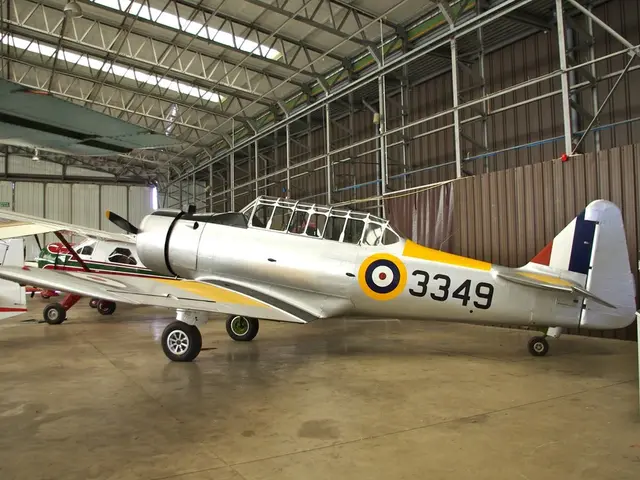Fragrance imports from Kaş might have been among Europe's earliest bottles discovered.
In the heart of Turkey, the Kas district on the Mediterranean coast, a significant underwater archaeology discovery was made. Hakan Öniz, the director of the excavation, announced the unveiling of a collection of 15 glass perfume bottles dating back approximately 1,000-1,100 years at "The Golden Age of Archaeology" exhibition in Ankara.
The region where the archaeological excavation took place, Anatolia, is historically significant as the cradle of early navigation. The perfume bottles, believed to have originated from the eastern Mediterranean, may represent some of the earliest examples of fragrance imports to Europe.
These findings are part of the Heritage for the Future Project, a large-scale initiative currently conducting four major underwater excavations in Turkey. The project includes archaeologists from Australia, Argentina, Japan, and numerous doctoral and graduate students. The international participants join for at least 15 days of hands-on training aboard the research vessel.
The Kaş-Besmi excavation, one of the sites under the Heritage for the Future Project, is believed to be a trade ship from the eastern Mediterranean that sank around a millennium ago. The perfume bottles, made using a mold-blowing technique typical of Syria-Palestine, suggest a rich maritime trade history and illustrate the significance of the Kaş district in historical Mediterranean commerce.
Underwater archaeology in Turkey has a long history dating back to the Ottoman era in the late 19th century, with Osman Hamdi Bey pioneering early research. Modern underwater archaeology continues this legacy using advanced technologies.
The work on underwater archaeology is carried out under the auspices of UNESCO, ICOMOS, and the world Underwater Federation. Excavations also continue in other maritime regions, such as the ancient port of Parion in the Biga district along the Dardanelles, where Ottoman naval shipyards and possible shipwrecks have been investigated, linking maritime history from ancient times through the Ottoman period to modern shipbuilding.
Beyond the Mediterranean coast, underwater archaeology in Turkey extends to other regions, such as ancient submerged cities like those found in Lake Van, believed to date back 12,000 to 14,500 years ago. This highlights the range and depth of underwater archaeological research in Turkey across different regions and historical periods.
These findings emphasize Turkey’s longstanding role as a cradle of maritime activity and a leader in underwater archaeology. The Kaş-Besmi excavation is a testament to the rich history and ongoing contributions of Turkey in the field of underwater archaeology.
Read also:
- Tech mogul Erik Bergman, founder of Great.com, contributes a million dollars to clean water initiatives in Africa.
- Growing interest in private solar energy systems among American residents, emulating a widespread European trend.
- Brunswick Exploration Uncovers Extensive Lithium Deposits in Greenland's Pegmatite Field
- India's native commercial Earth Observation satellite constellation will be spearheaded by PixxelSpace, as announced by IN-SPACe.








